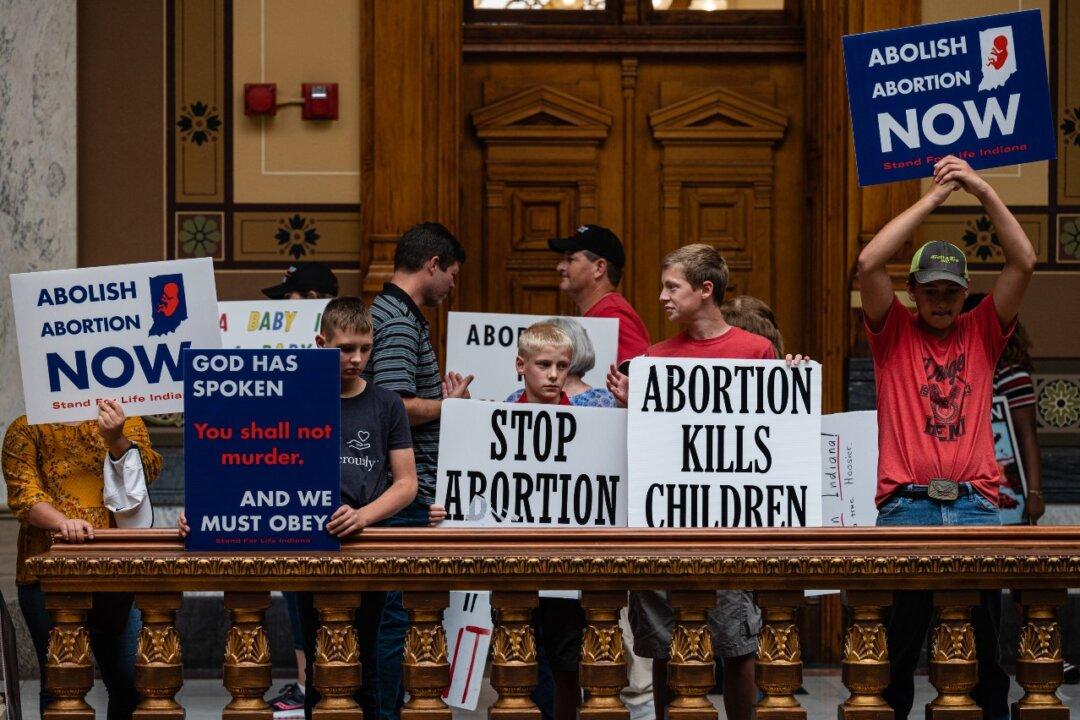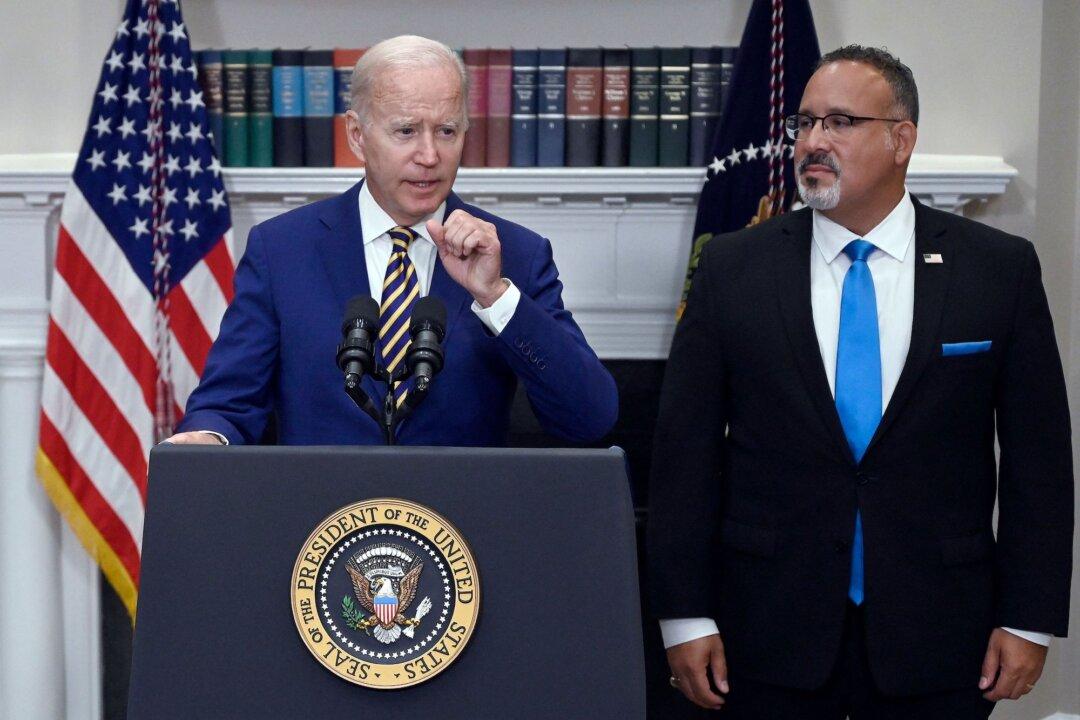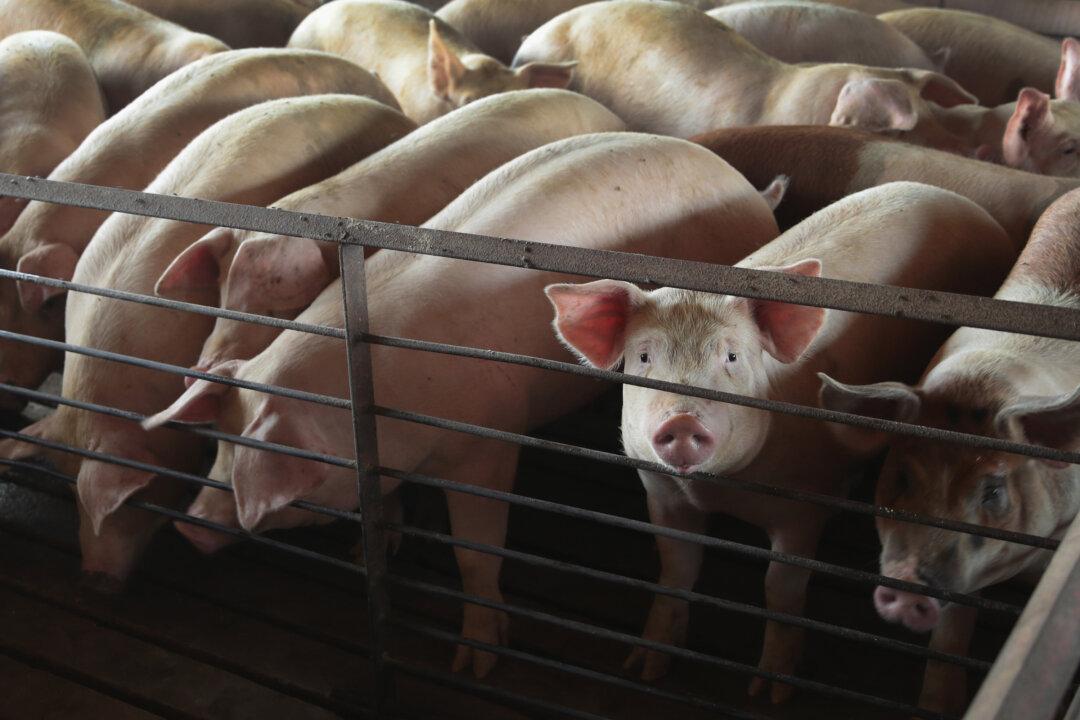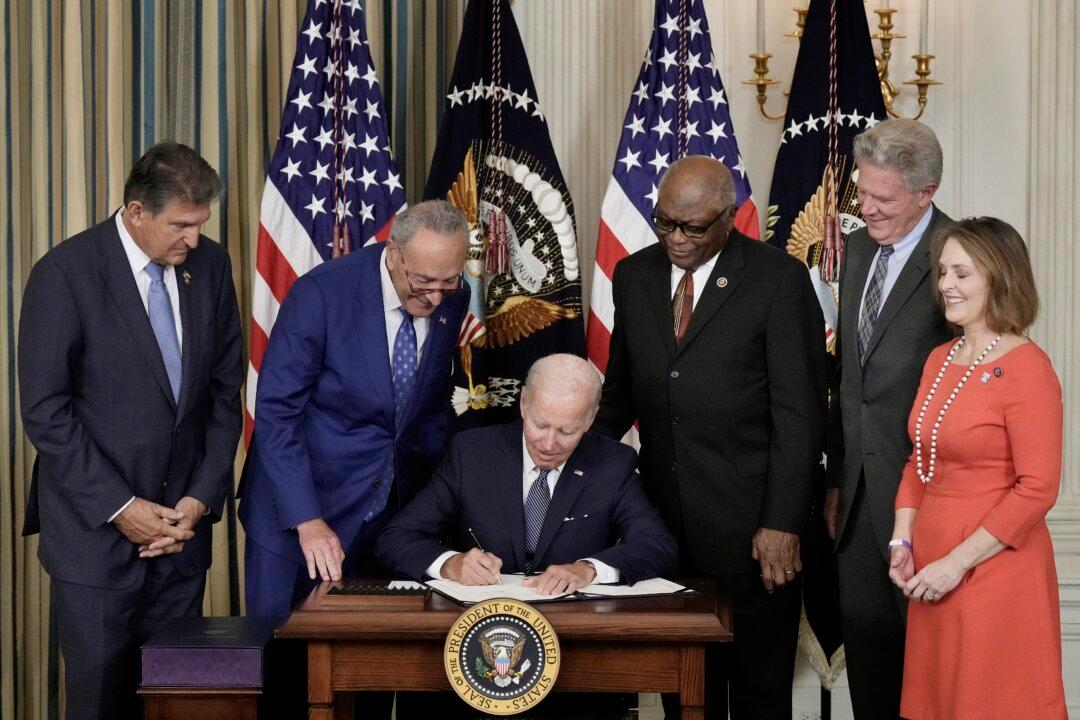INDIANAPOLIS, Ind.—Car horns blared in morning traffic on Sept. 13 as the pro-life group Sidewalk Advocates stood post outside a Planned Parenthood clinic. Some commuters waved, others offered less gracious hand gestures.
“We call that the finger toward heaven,” one of the advocates said, smiling.





